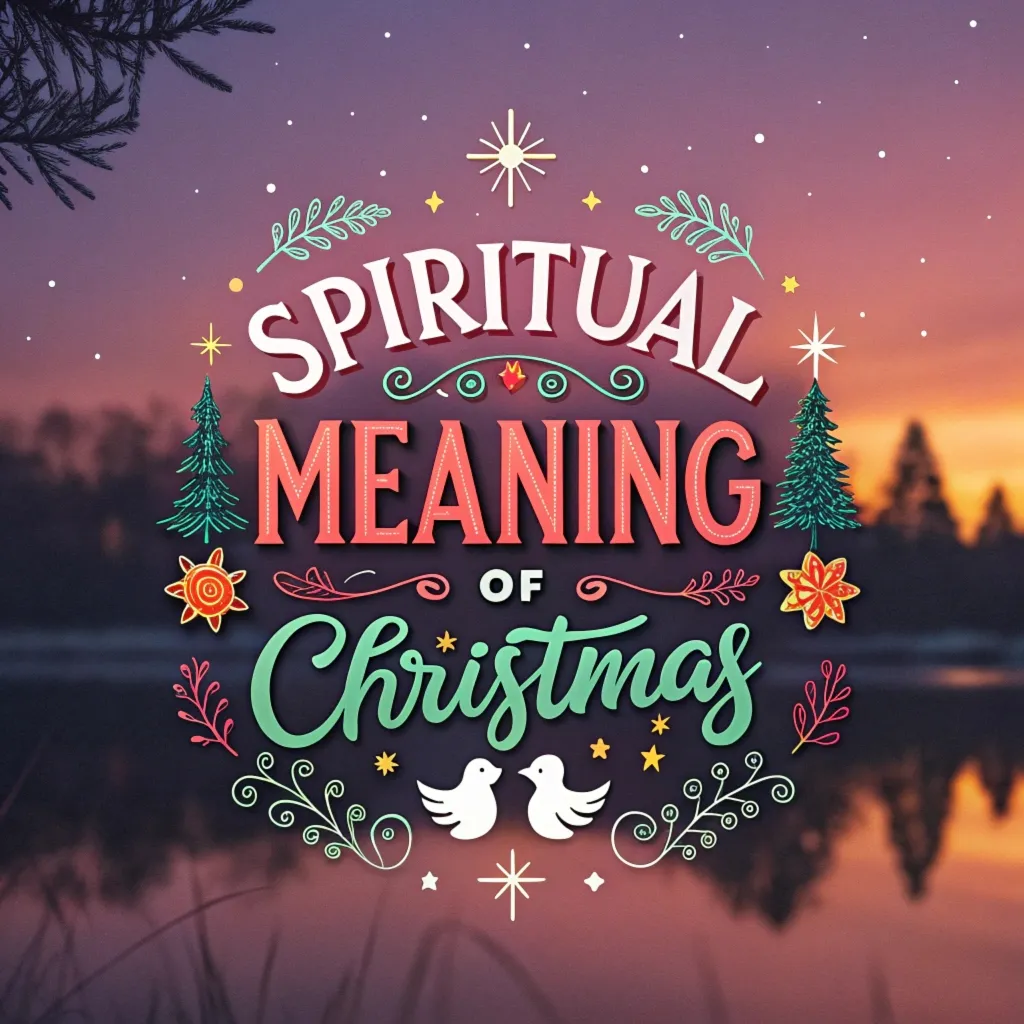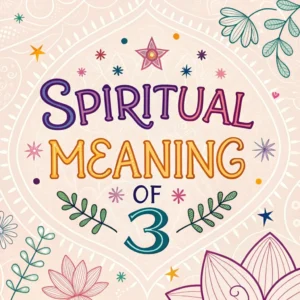Christmas is a special time of year. It’s not just about presents and Santa Claus. There’s a deeper meaning to this holiday. Christmas celebrates the birth of Jesus. But it also means something important for everyone.
It’s about love, kindness, and hope. In this post, we’ll explore what Christmas really means. We’ll look at the symbols and stories of Christmas. These can teach us big lessons about being good people.
Let’s discover the hidden messages in Christmas traditions. We’ll see how they can help us grow and be better. Get ready to see Christmas in a new way!
The Spiritual Essence of Christmas
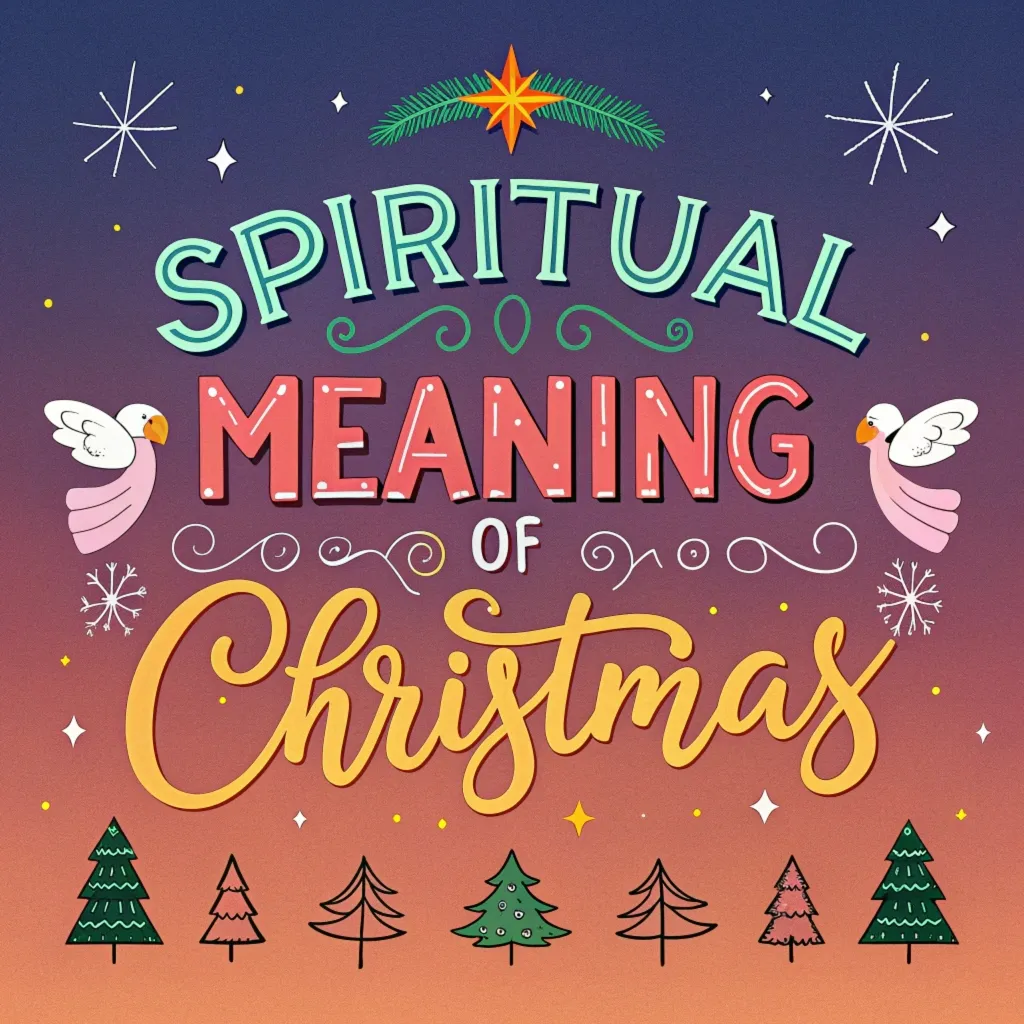
- Christmas represents the birth of Christ consciousness within the human heart
- The holiday symbolizes the triumph of light over darkness in our spiritual journey
- Christmas embodies the concept of God’s presence among humanity
- The nativity story reflects the humble beginnings of spiritual awakening
- Christmas encourages selfless giving and compassion towards others
- The holiday promotes inner peace and goodwill towards all
- Christmas serves as a reminder of our inherent divinity and potential for spiritual growth
- The season invites us to reflect on our spiritual progress and set new intentions
- Christmas symbolizes the renewal of hope and faith in divine guidance
- The holiday teaches us about the power of love to transform individuals and society
The Divine Birth: Christ Consciousness Awakens
Christmas marks the birth of Jesus Christ, but it also symbolizes the awakening of Christ consciousness within each individual.
This spiritual awakening represents the start of a transformative journey from ignorance to wisdom, from darkness to light.
Christmas is like a special birthday for everyone’s inner goodness. It’s not just about Jesus being born long ago.
It’s about the good part inside each of us waking up. This good part helps us learn and grow.
It’s like a light turning on in a dark room, helping us see things better and be kinder to others.
The Star of Bethlehem: Guiding Light of Spiritual Wisdom
The Star of Bethlehem symbolizes the inner light of wisdom that guides seekers on their spiritual path. It represents the divine guidance available to all who seek higher truth and understanding.
The Star of Bethlehem is like a bright flashlight in the sky. It helped wise men find baby Jesus long ago. But it also means something for us today.
It’s like a special light inside us that helps us make good choices. This inner light can guide us to learn important things and be better people.
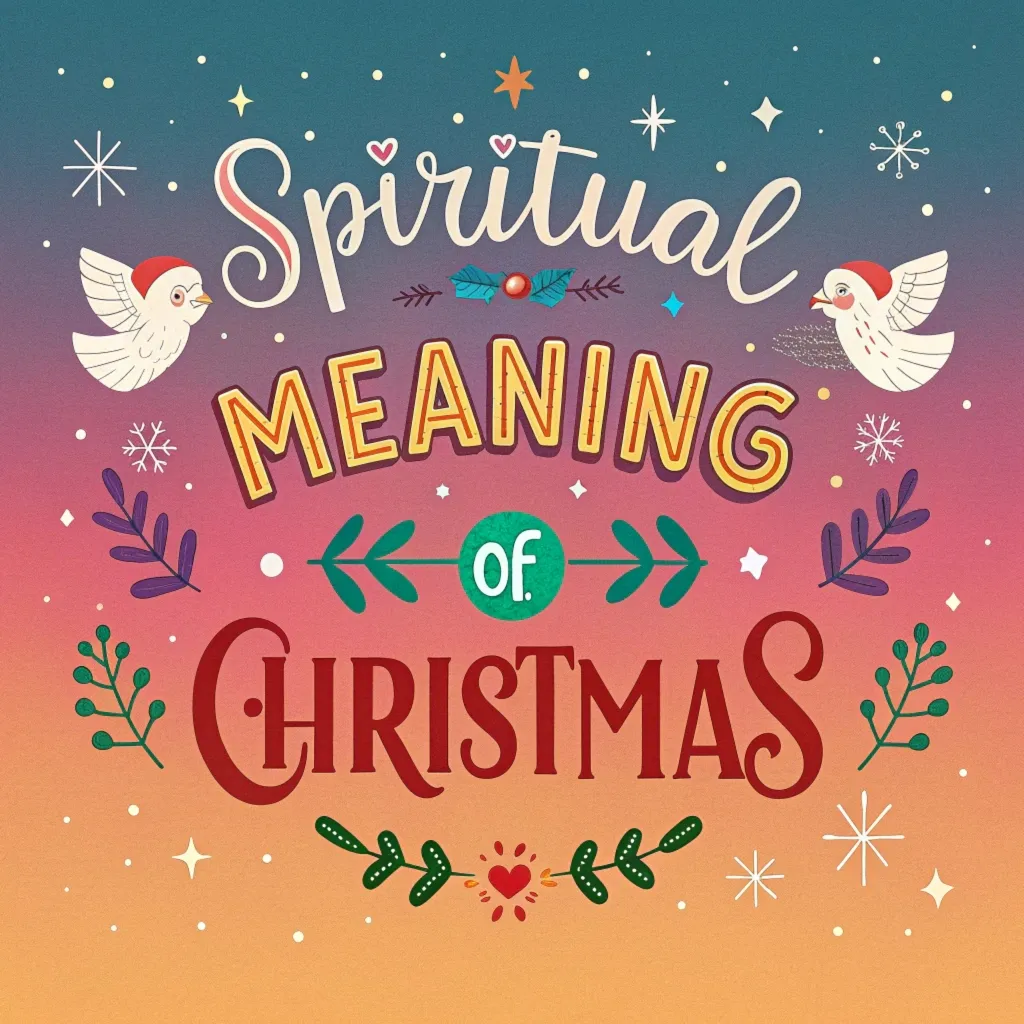
The Christmas Tree: Symbol of Spiritual Growth
The Christmas tree serves as a powerful symbol of spiritual evolution. Its evergreen nature represents eternal life, while the lights adorning it symbolize the illumination of consciousness as we progress on our spiritual journey.
The Christmas tree is more than just a pretty decoration. It’s like a big green teacher. The tree stays green all year, which reminds us that our souls live forever.
The lights on the tree are like little stars. They show how we can shine brighter as we learn and grow. Each ornament could be a good deed or a lesson we’ve learned.
The Three Wise Men: Seekers of Divine Truth
The Three Wise Men in the nativity story represent the quest for spiritual knowledge.
Their journey to find the Christ child symbolizes the human search for higher truth and the recognition of divinity in humble circumstances.
The Three Wise Men were like curious explorers. They traveled far to find baby Jesus because they wanted to learn something important.
Their journey shows us that it’s good to look for answers about life. They teach us that sometimes big truths come in small packages, like a baby in a manger.
The Gifts of the Magi: Offerings to the Divine
The gifts brought by the Wise Men – gold, frankincense, and myrrh – symbolize our offerings to the divine. They represent the dedication of our material wealth, devotion, and willingness to sacrifice in pursuit of spiritual growth.
The gifts from the Wise Men were special presents for baby Jesus. But they mean more than that. They show us how to give to others and to God.
Gold is like sharing our money or things. Frankincense is like our prayers and love. Myrrh is like being ready to work hard for good things. These gifts teach us about different ways to give.
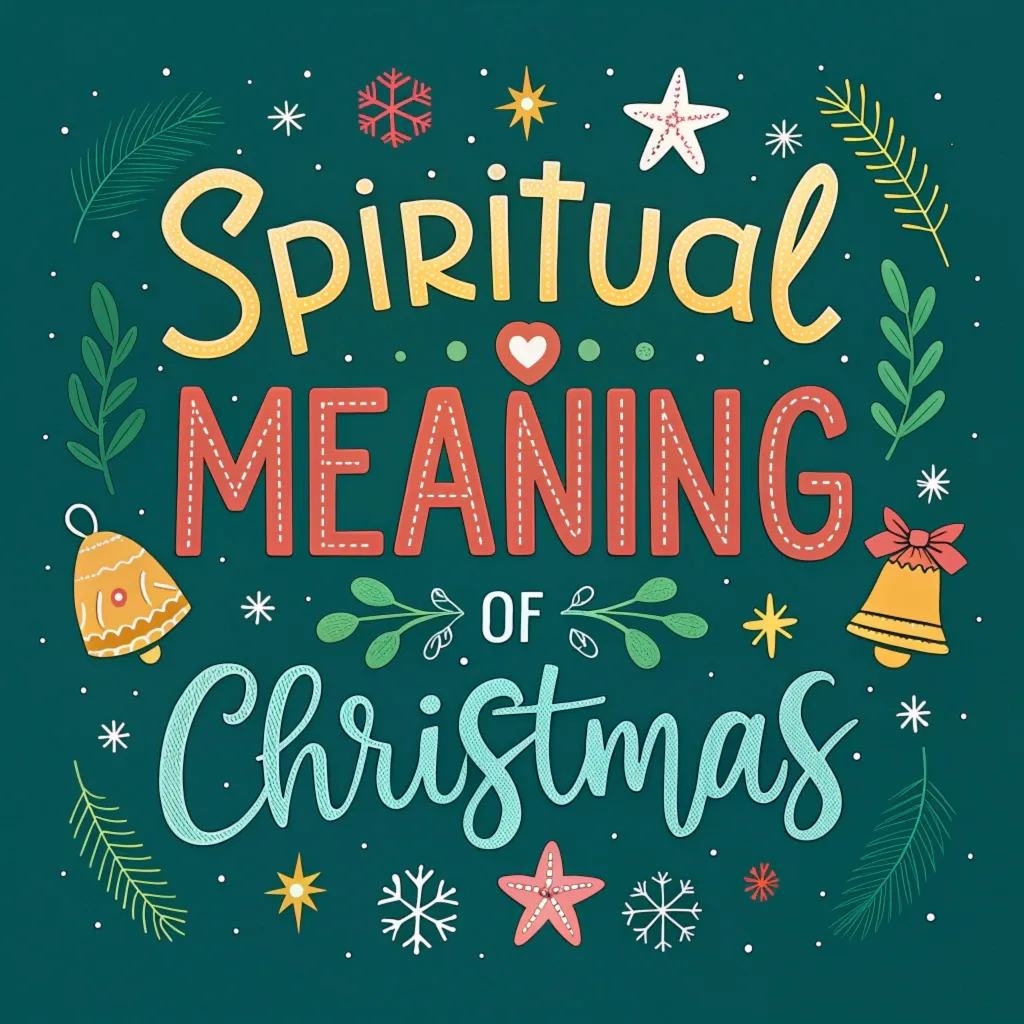
The Manger: Humility and Simplicity in Spiritual Life
The humble manger where Jesus was born symbolizes the importance of simplicity and humility in spiritual life. It teaches us that true divinity can manifest in the most unexpected and modest places.
The manger where baby Jesus slept wasn’t fancy. It was just a simple animal feeding box. This teaches us that great things can happen in simple places.
We don’t need big, expensive stuff to be good or important. The manger shows us that being humble and simple can be very special.
Angels and Shepherds: Divine Messages and Receptive Hearts
The angels announcing Christ’s birth to shepherds symbolize divine messages reaching those with open and receptive hearts. This reminds us to remain attentive to spiritual guidance in our daily lives.
Angels talking to shepherds is like getting a special message. The shepherds were just doing their job, watching sheep.
But they were ready to listen when something amazing happened. This story teaches us to be open to good ideas and help, even when we’re doing everyday things. We might learn something wonderful if we pay attention.
The Holy Family: Unity of Divine and Human
Mary, Joseph, and Jesus represent the unity of divine and human aspects within us. This family symbolizes the integration of spiritual wisdom, protective strength, and pure consciousness in our being.
The Holy Family – Mary, Joseph, and baby Jesus – is like a team that shows us how to be good. Mary is like the kind and wise part of us.
Joseph is like the strong and protective part. Baby Jesus is like the pure and loving part. Together, they teach us how to combine different good qualities in ourselves.
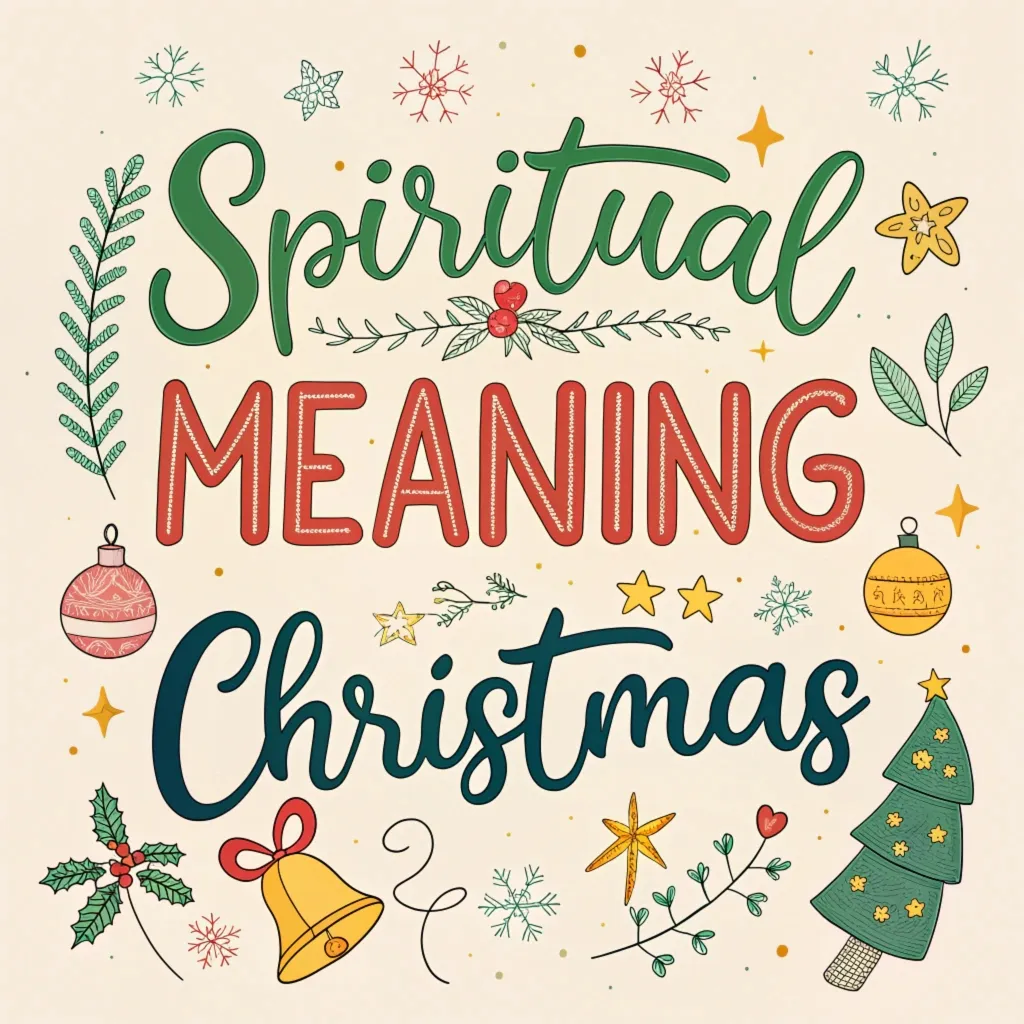
Santa Claus: Spirit of Giving and Kindness
While not part of the original nativity story, Santa Claus embodies the spirit of selfless giving and kindness central to Christ’s teachings. This figure reminds us of the joy in generosity and compassion.
Santa Claus might not be in the Bible, but he teaches us something important. He shows us how to be kind and give to others without wanting anything back.
Santa brings joy by giving presents. This reminds us that being generous and kind can make us and others happy. It’s like spreading Christmas cheer all year round.
The Twelve Days of Christmas: Stages of Spiritual Unfoldment
The twelve days of Christmas can be seen as representing the stages of spiritual growth and enlightenment. Each day symbolizes a step in the journey towards full realization of our divine nature.
The Twelve Days of Christmas isn’t just a fun song. It’s like a map for growing spiritually. Each day is a step to becoming a better person. It’s like climbing a ladder to reach our best selves.
These days remind us that growing and learning take time, just like it takes twelve days to finish the song.
Christmas Carols: Expressions of Spiritual Joy
Christmas carols serve as expressions of spiritual joy and devotion. Singing these songs can be a form of bhakti yoga, or the yoga of devotion, helping to open our hearts to divine love.
Christmas carols are more than just pretty songs. They’re like happy messages about love and goodness. When we sing carols, it’s like we’re telling the world we’re happy about these good things.
Singing together can make our hearts feel warm and full of love. It’s a way to share joy with others.
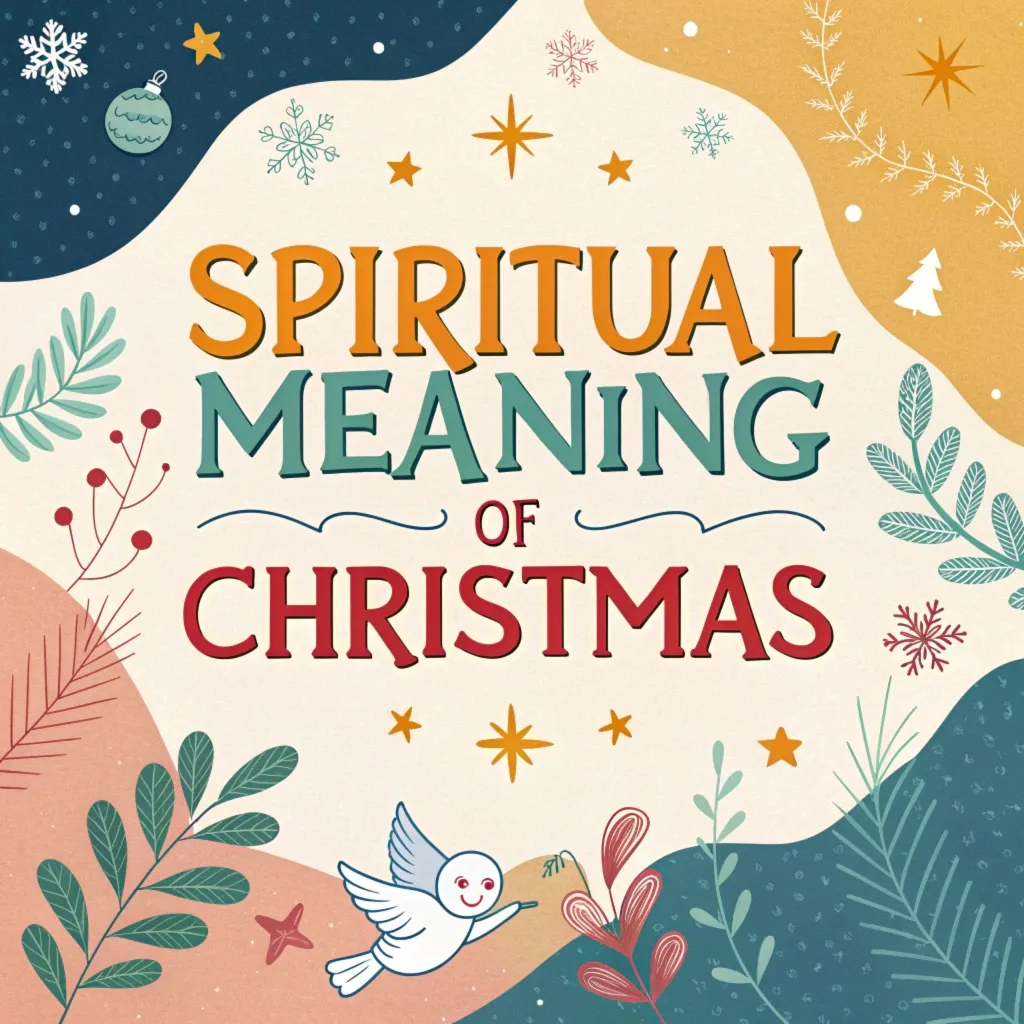
The Spiritual Practice of Christmas
Embracing the spiritual meaning of Christmas involves more than external celebrations. It requires inner reflection, meditation, and a renewed commitment to living with love, compassion, and awareness of our divine nature.
Christmas isn’t just about presents and decorations. It’s also about thinking deeply and being kind. We can practice the spirit of Christmas by being quiet and thinking about how to be better.
We can try to be more loving and helpful to others. It’s like exercising our hearts and minds to become kinder and wiser.
FAQs
What is the true spiritual meaning of Christmas?
The true spiritual meaning of Christmas is the birth of divine consciousness within the human heart, symbolizing the potential for spiritual awakening and transformation in every individual.
How can I celebrate Christmas in a more spiritual way?
To celebrate Christmas more spiritually, focus on meditation, prayer, acts of kindness, and reflecting on the teachings of Christ. Emphasize giving to those in need and cultivating inner peace and goodwill.
What does the Christmas star symbolize spiritually?
Spiritually, the Christmas star symbolizes divine guidance and the inner light of wisdom that leads seekers on their path to higher truth and understanding.
How does the concept of Christ consciousness relate to other spiritual traditions?
Christ consciousness, or the awakening of divine awareness, is a concept found in various spiritual traditions under different names. It represents the universal potential for spiritual enlightenment and union with the divine.
What spiritual lessons can we learn from the nativity story?
The nativity story teaches lessons of humility, faith, the recognition of divinity in unexpected places, and the importance of following inner guidance on our spiritual journey.

Hello, I’m Zephyra, your guide at SpiritualityEssence.com. I’m passionate about uncovering life’s mysteries and sharing transformative insights. Let’s explore mindfulness, ancient rituals, and the path to a more awakened life together. Join me on this spiritual journey!

